Advancing Planetary Epidemiology through Earth Observations
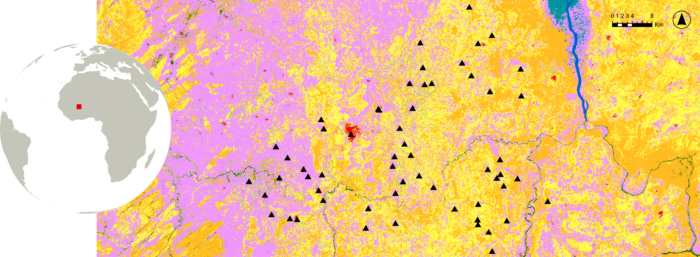
Planetary epidemiology is a new sub-discipline of epidemiology that aims to address the multiplying impacts of global environmental change on the health of humans and other species, as well as to address the anthropogenic drivers of these changes. To that end, experts from Future Earth’s Health Knowledge-Action Network (Health KAN), the European Space Agency (ESA), and Imperial College London held a webinar on 25 July to explore directions for advancing empirical research on planetary epidemiology, in particular through shaping a Health KAN pilot study in Burkina Faso, taking advantage of the latest satellite data products. This blog post aims to give an introduction to the topics discussed at the webinar, through the lens of a novel epidemiological study funded by the ESA-Future Earth joint program, led by Dr. Kristine Belesova, and highlighting advancements in available data relevant to this type of study.
What is planetary epidemiology?
Planetary epidemiology is a break-through approach to understanding multi-exposure issues. They comprise complex and long pathways through which global environmental changes such as climate change, biodiversity loss, and land system change impact human health. This approach aims to link the most important exposures to the health consequences of concern, examine their interactions and how these effects are mediated and modified by various ecological and social factors. To do this, the choice of environmental factors and health outcomes are crucial, and determine which data are most valuable for a particular study.
Environmental data from Earth observations
There is a wide range of satellite-based datasets available via ESA’s Climate Change Initiative and produced operationally up to the present day through the Copernicus services, offering a wealth of climate variables, such as soil moisture, land cover, fire, and land surface temperature, at different spatial and temporal resolutions and at global-scale. These datasets form the foundation of environmental data necessary for a planetary epidemiological study. Clement Albergel, Climate Applications Scientist at ESA, introduces and shares how to find such data through ESA’s platform.
Of course many other sources of data are also available, not only from space agencies but also served through big data intermediary platforms and commercial satellite data providers. Fred Stolle, Deputy Director of Forests at the World Resources Institute, focuses on the variety of land cover datasets and online tools available, for example through Global Forest Watch, pointing out that soon researchers will have access to high resolution (10m data) data spanning 10 years. This is thanks to the Copernicus Sentinel-1 and Sentinel-2 satellite missions: used in combination, these observations are the basis for the ESA WorldCover and WorldCereal datasets. Fred Stolle also notes how the pace of change of land cover is accelerating. At a global scale, more than 17% of the land surface has undergone at least one change in type of cover – for example from forest to grassland, or grassland to cropland. It is the impacts of these changes, at a local scale, that are the focus of the Health KAN pilot study in the Nouna region of Burkina Faso entitled, “Child health, climate, and land system change in Sub Saharan Africa”.
Epidemiological Data & long-term population health
Vital to the study is long-term population health and context information, thanks to efforts led by Ali Sie, Director of the Centre de Recherche en Sante de Nouna. The Health and Demographic Surveillance system has been running in Nouna since 1992 facilitates extensive climate change and health research, e.g., on health impacts of heat, climate change impacts on infectious disease risk, and malnutrition as well as the development of suitable local adaptation strategies. As an example, Ali Siee points out findings that the elderly in the population appear to be sensitive to extremes of heat as well as low temperatures, with an increase in mortality up to a day later. They also find an increase in mortality up to a factor of 7 with extremes of rainfall, indicating a need for further investigation.
So what can be done? A pilot study approach
Being introduced to the diverse range of resources available, we can now turn to what challenges planetary epidemiology can investigate. Kristine Belesova and Richard Belcher from Imperial College London present the pilot project plans and early results of the assessment of the historical land cover change in Nouna, Burkina Faso, and the metrics they will use for exposure – considering household mobility, for example travel to places of agricultural work – that can align with the health outcome data. They will be further examining associations of these exposure metrics with child nutritional status and survival rates up to five years of age as well as the extent to which these metrics modify the previously identified associations of outcomes with annual crop yield productivity. Annual crop yield productivity in this area is highly sensitive to weather variation and climate change. It is projected that child deaths may rise twofold due to poor yields by the end of this century even under the Paris Agreement’s 1.5°C warming guardrail, if all socio-economic conditions are assumed to remain constant.
Kristine Belesova and Richard Belcher hope their pilot study will make a difference, and that this proof of concept will be a stepping stone to a larger Planetary epidemiology study.
Points of consideration
Members of the Future Earth Health KAN Chiho Watanabe, Dean of the Interfaculty Initiative in Planetary Health and Professor at Nagasaki University, and Andy Morse, Professor of Climate Impacts, present wider perspectives on the opportunities for advancing planetary epidemiology using Earth Observations. Watanabe Chiho highlights the methodological challenges of multi-exposure analyses at the individual and community level as well as the exposure assessment challenges posed by human mobility, raising the awareness of challenges around identifying evidence for causality. Andy Morse points to opportunities for using Earth Observation (EO) data in analyses of climatic impacts and ecological changes on infectious disease risk. He further emphasises the need to bridge the communities of EO and data-driven disease modelling, using tools from machine learning and quantum computing, to provide improved forecasts for populations and decision makers.
Wei Ma, Professor and Deputy Director at Shandong University Climate Change and Health Center and a steering committee member of Health KAN, calls for new approaches in planetary epidemiology and welcomes the use of high-resolution data. Jem Woods, Director of the Centre for Environmental Policy and professor of Sustainable Development at Imperial College London, cautions that exposure to primary production at a landscape level is challenging to tease out and points out the need to include not just food security but energy security and imports and exports to a region as important buffering factors.
Not only is planetary epidemiology able to derive new insights into the impacts of global environmental change on human health, with long-term slow onset impacts, but it can also detect rapid changes that may be affecting the health of humans and other species, with potential of forecasting and informing decision makers.
Bridging experts across disciplines
During the Webinar, discussion of the use of EO data for Planetary Health research, including human health, identifies the need for this emerging community to be better connected. Future Earth has set up a new open access Earth Observation Researchers group on its member portal. Sign up to join our vibrant community and find out about opportunities and events, and join the conversation!
More than 60 participants attended the webinar, and the pilot study discussed in this blog are endorsed by the Future Earth Health Knowledge-Action Network and funded by the ESA-Future Earth Joint program.
About the speakers:
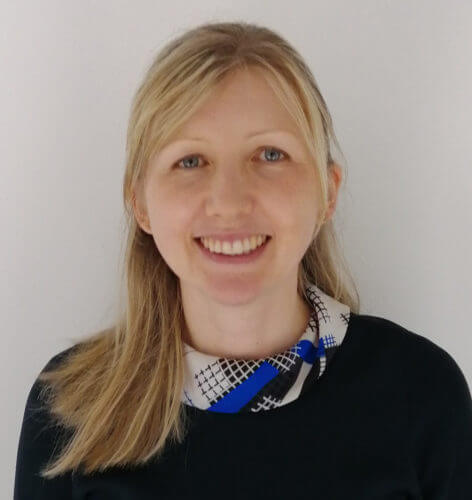 Sophie Hebden
Sophie Hebden
Liaison, Future Earth and European Space Agency
Sophie is a research liaison for Future Earth, based at the European Space Agency Climate Office, near Oxford, UK. She manages the ESA-Future Earth Joint Program, which supports collaborative activities of the Global Research Networks using Earth observations. She is interested in the climate science-policy interface, working on communication and coordination of projects. She has a PhD in space physics and an MSc in science communication.
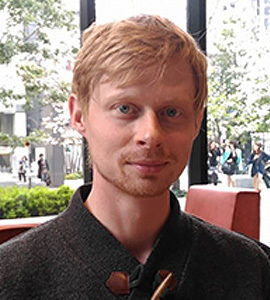 Giles Bruno Sioen
Giles Bruno Sioen
Co-Lead, Research & Innovation
Dr Giles B. Sioen is co-Lead for Research and Innovation based in the Future Earth Global Hub Japan, Research Associate at the National Institute for Environmental Studies of Japan, and chair of the KU Leuven Alumni Chapter Japan. Among other activities, he works on the research and innovation portfolio with colleagues from across the Future Earth community, coordinates the Future Earth Urban and Health Knowledge-Action Networks, conducts individual research, and supports a range of domestic projects and activities. His research focuses on the development of a transdisciplinary system-based guideline to reduce the impact of climate change and other disasters on cities and health.
 Kristine Belesova
Kristine Belesova
Senior Lecturer in Global Population Health, Imperial College London
Dr Kristine Belesova is an environmental epidemiologist working on planetary health, mostly in low- and middle-income countries. She is supporting the leadership and management of the NIHR Global Health Research Centre on Non-Communicable Diseases and Environment Change with India, Bangladesh, and Indonesia as the focus countries. Her research interests include impacts of global environmental changes such as climate change, biodiversity loss, and land use change on human nutrition, food security, and health, and the development and evaluation of transformative solutions to the health impacts of global environmental changes and their drivers.
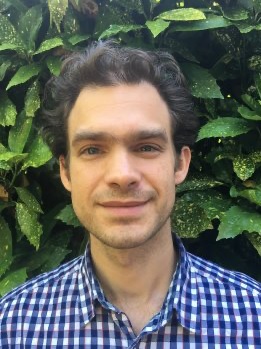 Clement Albergel
Clement Albergel
Climate Applications Scientist, European Space Agency
Clement Albergel is a scientist working at the ESA Climate Office in the UK where he develops climate applications related to terrestrial surfaces. His background is land surface modelling, land surface remote sensing and a combination of both through data assimilation techniques. Prior to ESA he has held position in the research departments of the European Centre for Medium Range Weather Forecast (ECMWF) as well as of the French Meteorological service (Meteo-France) working on land surface analysis as a scientist from the French National Research Centre (CNRS). His activities at ESA are mainly shared between ESA Climate program (ESA Climate Change Initiative), program in support of international development (GLOBAL DEVELOPMENT ASSISTANCE (esa.int) and EOAFRICA (EO AFRICA – Research and Development Facility), all implemented under the Directorate of Earth Observation Programmes.
 Chiho Watanabe
Chiho Watanabe
Dean of the Interfaculty Initiative in Planetary Health and Professor at Nagasaki University
Prof Chiho Watanabe is the Dean of the Interfaculty Initiative in Planetary Health and Professor at the School of Tropical Medicine and Global Health at Nagasaki University. He also serves as Professor Emeritus at the University of Tokyo, where he acquired his PhD in Health Sciences in 1991 and was appointed as a Professor in Human Ecology from 2005 until 2017. Chiho served as the President of the National Institute for Environmental Studies from 2017 until 2021. From 2021 to 2022, he served as a Professor at the School of Tropical Medicine and Global Health and an Executive Advisor to President on Planetary Health at Nagasaki University. Chiho was appointed as the President of the Society of Environmental Science in Japan from 2021 to 2022 and President of the Japanese Society for Health and Human Ecology 2017-2022. His past appointments also include Chair of the Human Ecology section at the Ecological Society of America and Vice President of the Society of Human Ecology at the Scientific Council of Japan. Chiho is a steering committee member of the Health-KAN and member of General Assembly at Future Earth. Chiho’s main research areas are Human Ecology, Environmental Health Science, Sustainability and Health.
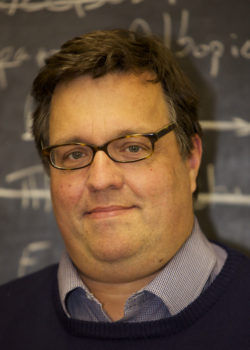 Andy Morse
Andy Morse
Professor of Climate Impacts
Prof Andy Morse has interest in applying current weather and climate forecast information for humanitarian well being through the use of application models and methodologies. He works on the impacts of climate variability and climate change on human and animal health. He is best known for his work at seasonal scales using ensemble predictions of seasonal climate variability on vector borne diseases. He has worked with a range of infectious diseases including malaria, Rift Valley fever, dengue and Zika. Much of his work has been focussed on sub-Saharan Africa. Andy also works on longer climate change impacts on infectious disease using outputs from a range of global climate models, using probabilistic approaches to bound the uncertainties in projections. Andy has additional interest in weather and climate disruption of other systems e.g., forests, fisheries, and urban pollution level. He has over 100 journal publications. He was co-awarded the 2006 World Meteorological Organisation’s Norbert Gerbier-MUMM International award for the work on integrating impacts models within seasonal ensemble forecasting systems.
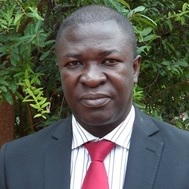 Ali Sie
Ali Sie
Director of Nouna Health Research Centre, Burkina Faso
Dr Ali Sie obtained his MD degree in 1998 at Ouagadougou University and completed his PhD training in clinical epidemiology at Heidelberg University/Germany. He started his career in 1999 by first working in Banfora’s regional hospital, Ministry of Health, Burkina Faso as a Clinician for five years until his transfer in 2004 as a research Fellow to develop the clinical research at Nouna Health Research Centre (CRSN). He has been appointed as Head of Research and Training Unit in 2005 before leading the CRSN as Director since 2007. Since 2004 he has been instrumental for the implementation of a sustainable clinical setting in Nouna hospital for clinical research. His main research area is epidemiology and clinical trials of infectious diseases. He is also interested in conducting scientific investigation of health conditions and health systems research.
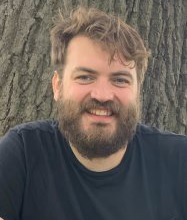 Richard Belcher
Richard Belcher
Research postgraduate, Imperial College London
Richard Belcher is a researcher, currently completing a PhD on external factors (traffic, local area socioeconomic deprivation and nearby water) that may change the association between residential green space and self-rated or mental health, at the Medical Research Council (MRC) Centre for Environment and Health in the Department of Epidemiology and Biostatistics. His research is in collaboration with the Wildfowl & Wetlands Trust (WWT) and part of the Science and Solutions for a Changing Planet (SSCP) Doctoral Training Partnership in the Grantham Institute, and is funded by the Natural Environment Research Council (NERC).
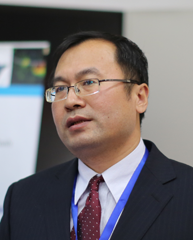 Wei Ma
Wei Ma
Professor and Deputy Director, Shandong University Climate Change and Health Center, Shandong University
Professor Wei Ma is the associate dean of the Shandong University School of Public Health, deputy director of the Shandong University Climate Change and Health Center. He received his PhD in Epidemiology at School of Public Health, University of California, Los Angeles in 2006. He is also a member of the Future Earth Health Knowledge Action Network Steering Committee. Prof. Ma’s research interests include infectious disease epidemiology and impacts of climate change, especially the impacts of extreme weather events, on human health.
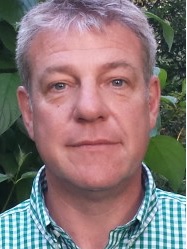 Jeremy Woods
Jeremy Woods
Director of the Centre for Environmental Policy and Professor in Sustainable Development, Imperial College London
Prof Jeremy Woods is working on the interplay between development, land-use and the sustainable use of natural resources. In the lead-up to the 2015 Paris Climate Agreement, he coordinated the land/food/bioenergy and climate science components of the Global Calculator and led the development of the Financial Times COP21 Climate Calculator. This work continues to be highly influential, supporting national and international climate negotiations and in 2020 we completed the European Calculator for the European Commission aimed at supporting Europe’s transition to a low carbon economy. With over 30 national calculators having been built and more under construction, alongside city and regional calculators, a new International 2050 Calculator Programme has been initiated to help support national and global transitions to sustainable, just and climate resilient futures. As a member of the Scientific Committee on Problems of the Environment’s (SCOPE) Scientific Advisory Committee on its ‘Bioenergy: bridging the gaps’ project he was lead author of the ‘land and bioenergy’ chapter and co-author on a cross-cutting issues chapter on ‘Food Security’.
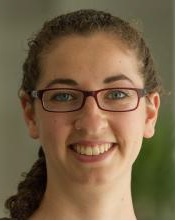 Elise Mazur
Elise Mazur
GIS Research Associate, Land & Carbon Lab, World Resources Institute
Elise Mazur is a GIS Research Associate with the Land & Carbon Lab. She works on geospatial analyses and strategy for all land covers with a focus on agricultural landscapes. She also works on mapping natural ecosystems to monitor land cover/use conversion. Prior to joining Land & Carbon Lab, Elise was an analyst on the Resource Watch making spatial data accessible to the general public, and on Energy Access Explorer creating spatial analyses of existing and potential energy supplies for decision-makers. Elise holds an M.S. in Geography from Oregon State University and a B.S. in Geographic Science from James Madison University. Her focus and passions are in remote sensing, food systems and social justice.
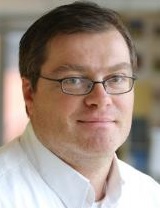 Fred Stolle
Fred Stolle
Deputy Director, Forests, World Resources Institute
Dr Fred Stolle has advised the World Bank and the governments of Indonesia and the Republic of Congo on reduced deforestation programs as part of the UN Climate framework (UNFCCC). Fred is also involved in several international processes including the Global Forest Observation Initiative (GFOI), Forest Carbon Partnership (FCPF), the Roundtable of Sustainable Palm Oil, and the Forest Resources Assessment published by the Food and Agriculture Organization of the UN. Fred started as a Geographical Information System (GIS) and Remote sensing specialist at ITC (Netherlands), UNEP (Nairobi) and UNESCO (Jakarta). For two years he worked in Kenya where he led a development of a coastal Atlas for Kenya, and lived for four years in Indonesia working on forests and land-use change issues.
DATE
August 22, 2023AUTHOR
Giles Bruno SioenKristine Belesova
Sophie Hebden
SHARE WITH YOUR NETWORK
RELATED POSTS
Spotlight on LMICs – Getting Up To Speed on the Pacific Islands: A Plan for Resilience
Reflections from the Fire Science Learning AcRoss the Earth System (FLARE) Workshop
COP28: Health is Finally on the Agenda – But There’s More to do as We Face Continued Climate Extremes